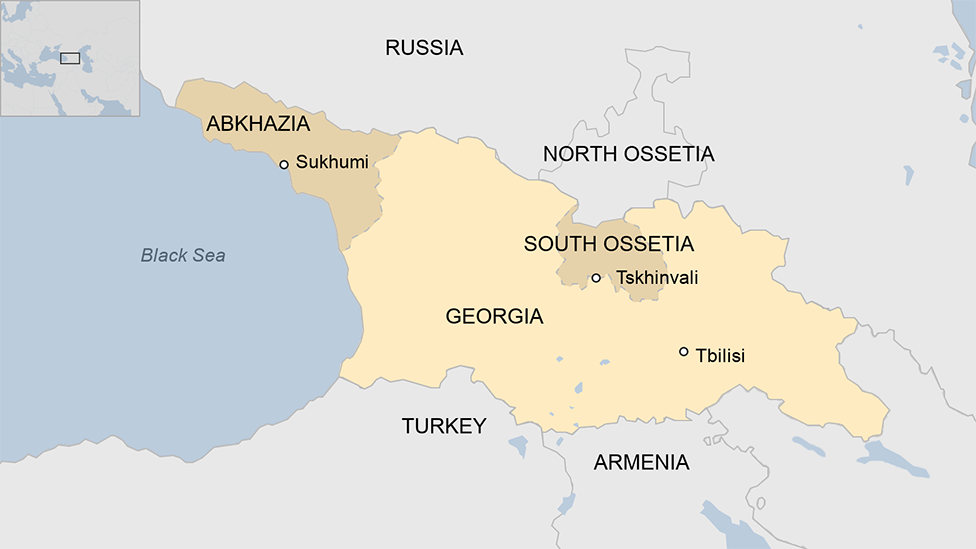Analysis: Unrest in Abkhazia
- Published
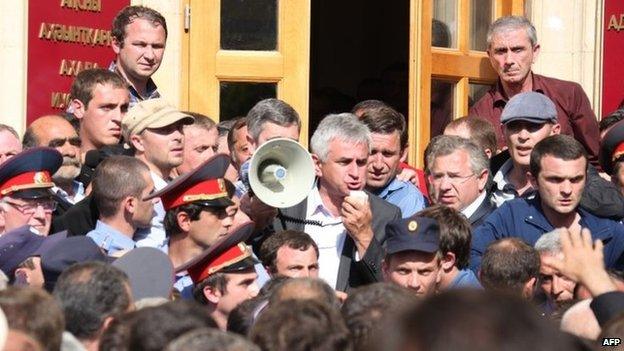
Opposition leader Raul Khadzhimba addressing protesters in front of the presidential office in Sukhumi
Unrest has erupted in one of the least understood conflict zones of the former USSR: the tiny, impoverished Black Sea territory of Abkhazia.
It broke away from Georgia after a ferocious war two decades ago and has since been supported mainly by Russia.
Here Michael Cecire, external, an expert on the region at the Foreign Policy Research Institute in Philadelphia, answers questions for BBC News.

Is this about poverty?
The frustration is likely to be real. Russia, and the de facto Abkhazian government, promised that the 2014 Sochi Olympics would be a boon to the Abkhazian economy, but it was anything but. The Olympics were billed as a way of boosting the economy by bringing tourism to Abkhazia or sourcing materials for construction, but the most noticeable effect was actually a source of frustration: the expanded security cordon that penetrated beyond the Russia-Abkhazia border.
Some of Abkhazia's economic problems can certainly be attributed to the de facto government, but it is Russia that has the real power to improve conditions. For example, the Moscow-financed building boom in Chechnya has improved material conditions (even if human rights remain a deep problem), but nothing comparable has happened in Abkhazia.
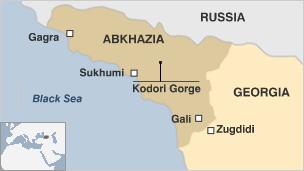
However, even this is only a part of the story. The opposition has certainly cited economic conditions as a major grievance, but the chief point of contention is President Alexander Ankvab's more liberal (relatively speaking) policy towards ethnic Georgians in Abkhazia, primarily concentrated in the Gali region. Mr Ankvab has advocated more fully integrating them into Abkhazian society, which includes giving them passports and Abkhazian "citizenship". The opposition, led by Raul Khadzhimba, has painted this as a purely political ploy by Mr Ankvab to expand his electoral base (they accused the late former President, Sergei Bagapsh, of the same) and say these policies could endanger Abkhazia's ethnic Abkhazian identity.
Mr Khadzhimba has also accused the Ankvab government of kowtowing to Moscow. Though there is a political consensus in favour of a security alliance with Russia, Mr Khadzhimba's opposition does not wish to allow Russians to buy Abkhazian property or to see Sukhumi integrate too closely within Russia. It is unclear just how much of a believer Mr Khadzhimba is - he is a former KGB officer and was once seen as Moscow's favoured politician. His political transformation suggests that his ideals are rather pliable, but he also may feel spurned by his former patrons. All we really know is that Mr Khadzhimba truly believes he should be in power. As for Mr Ankvab, his political longevity depends largely on Russia. If they see abandoning him as politically expedient, he will face a much more difficult time regaining power.

How strong is the opposition leader's nationalism?
He is an ethno-nationalist. He is not anti-Russia, as there is little room in the political landscape for anti-Moscow sentiments, but he has campaigned strongly against further integration with Russia at the expense of Abkhazian independence. His platform is to preserve the ethnic Abkhazian character of the state versus Mr Ankvab's broader view of citizenship. By all indications, he was actively backed by the Russians in his electoral contest against Bagapsh in 2004. Russian President Vladimir Putin even reportedly campaigned for him and, after he lost, there was a chilly period between Moscow and Abkhazia until a compromise was found.

Should we be surprised by this unrest now?
It was not a surprise. The opposition actually submitted a 5 May ultimatum to Mr Ankvab in late April for him to dismiss his government and make radical reforms. His response was essentially a shrug, so it was really only a matter of time until the opposition launched protests. The opposition's ability to quickly rally and force Mr Ankvab and his government to vacate is a more surprising development, but it was never unimaginable. I do not see the Kremlin or the Georgians involved in this. However, Russia may go with the more politically expedient choice if it becomes clear that Mr Ankvab cannot maintain stability.

How might the president's removal affect Abkhazia's relations with Georgia and Russia?
If Mr Khadzhimba gains power, the likelihood that Gali Georgians will see large-scale re-enfranchisement will strongly diminish, but the relationship with Russia is not likely to change appreciably. There may be a slowdown, or even some reversal, in Abkhazia's integration with Russia, but Mr Khadzhimba has not given any indication that he is willing to turn to Georgia or the West as an alternative. That means Sukhumi will continue to be reliant on Moscow for its budget and economy.

Do you see any parallels with Ukraine?
Not especially, other than popular anger against an incumbent who is accused of presiding over a diminishing, corrupt economy.
- Published28 May 2014
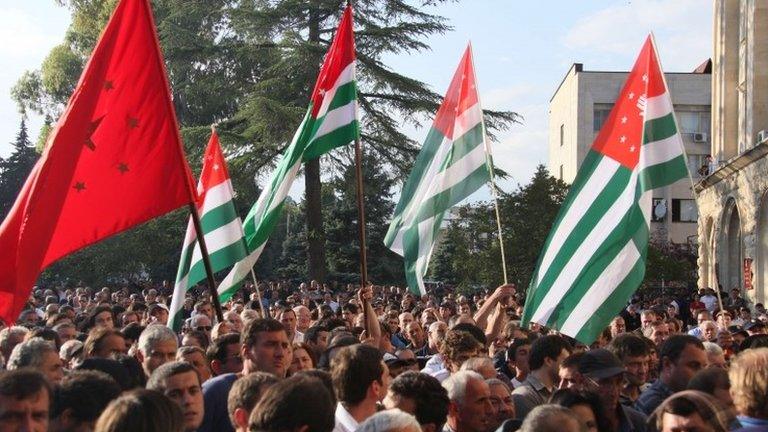
- Published25 June 2013
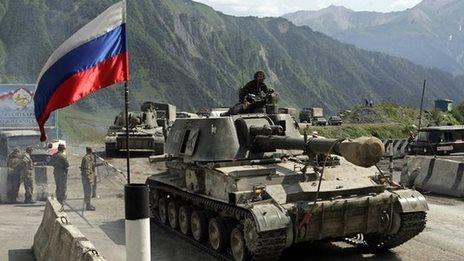
- Published4 February 2014
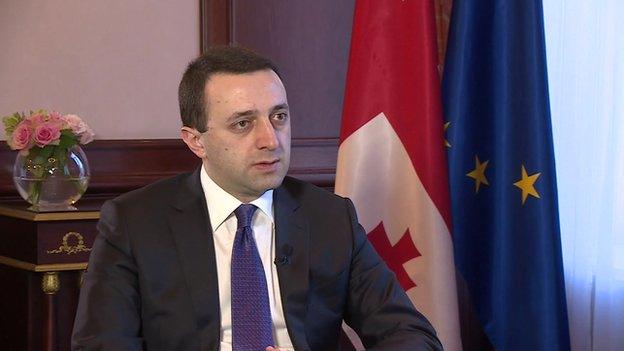
- Published19 November 2024
